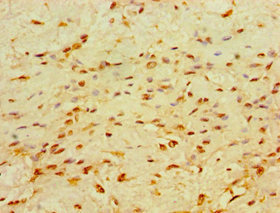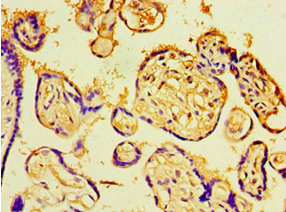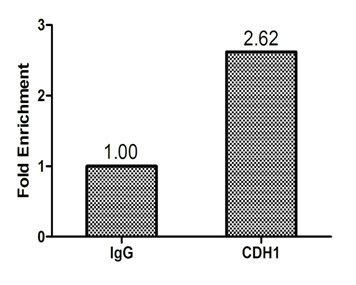Full Product Name
Rabbit anti-Homo sapiens (Human) CHD1 Polyclonal antibody
Alternative Names
ATP dependent helicase CHD 1 antibody; ATP-dependent helicase CHD1 antibody; CHD 1 antibody; CHD-1 antibody; Chd1 antibody; CHD1_HUMAN antibody; Chromodomain helicase DNA binding protein 1 antibody; Chromodomain-helicase-DNA-binding protein 1 antibody; DKFZp686E2337 antibody; OTTHUMP00000222625 antibody
Immunogen
Recombinant Human Chromodomain-helicase-DNA-binding protein 1 protein (1501-1710AA)
Immunogen Species
Homo sapiens (Human)
Purification Method
Antigen Affinity Purified
Concentration
It differs from different batches. Please contact us to confirm it.
Buffer
PBS with 0.02% sodium azide, 50% glycerol, pH7.3.
Tested Applications
ELISA, IHC, ChIP
Recommended Dilution
| Application |
Recommended Dilution |
| IHC |
1:20-1:200 |
Storage
Upon receipt, store at -20°C or -80°C. Avoid repeated freeze.
Lead Time
Basically, we can dispatch the products out in 1-3 working days after receiving your orders. Delivery time maybe differs from different purchasing way or location, please kindly consult your local distributors for specific delivery time.
Usage
For Research Use Only. Not for use in diagnostic or therapeutic procedures.






